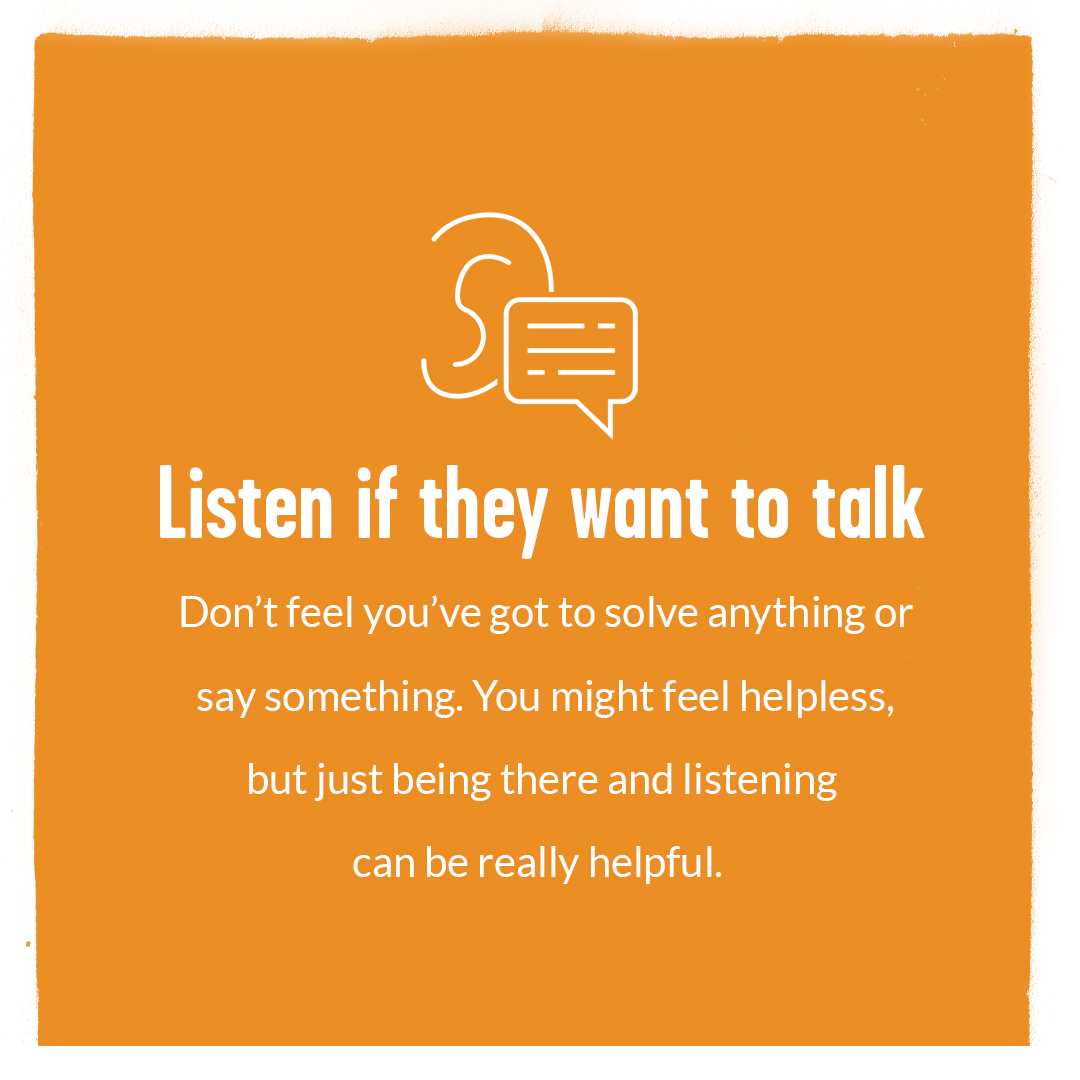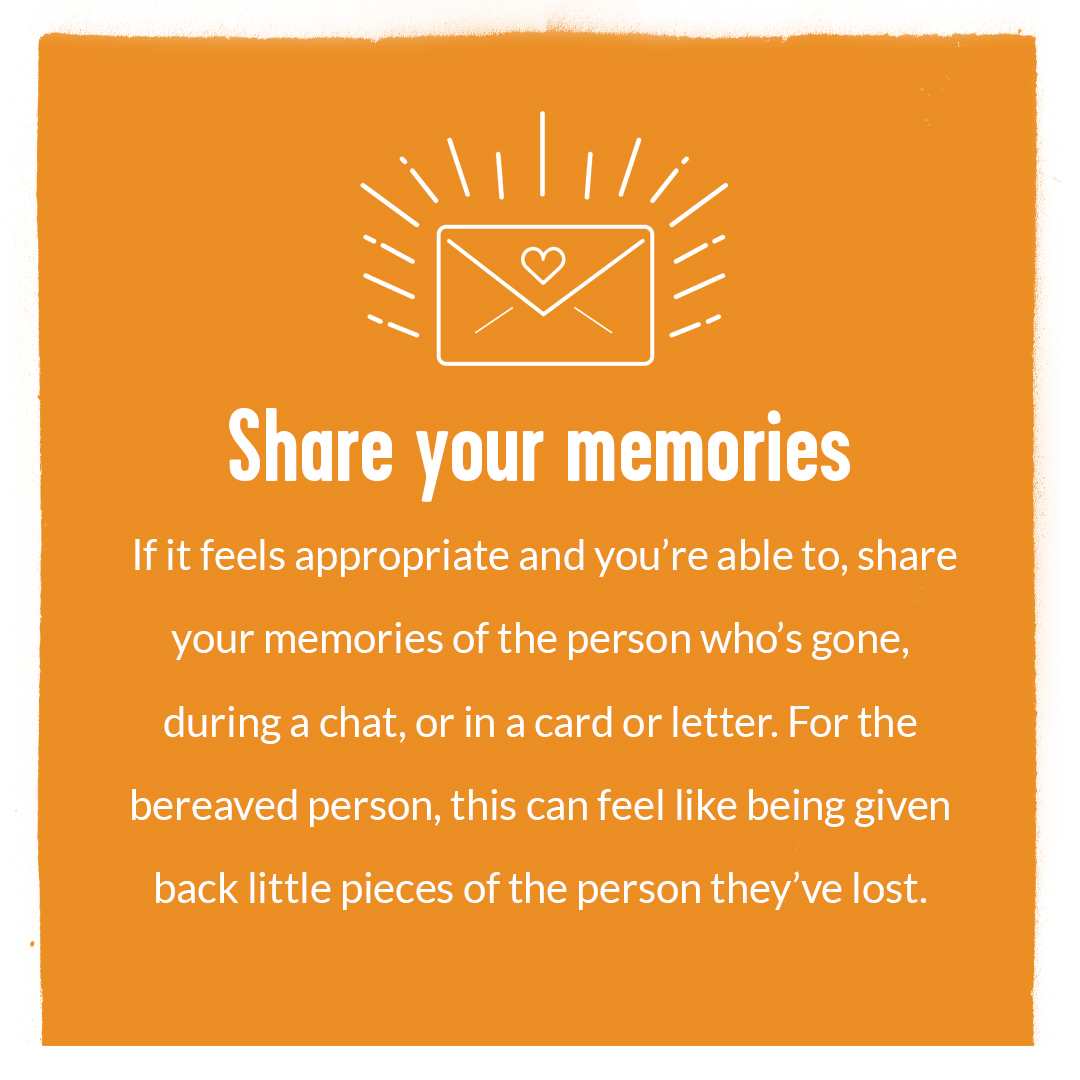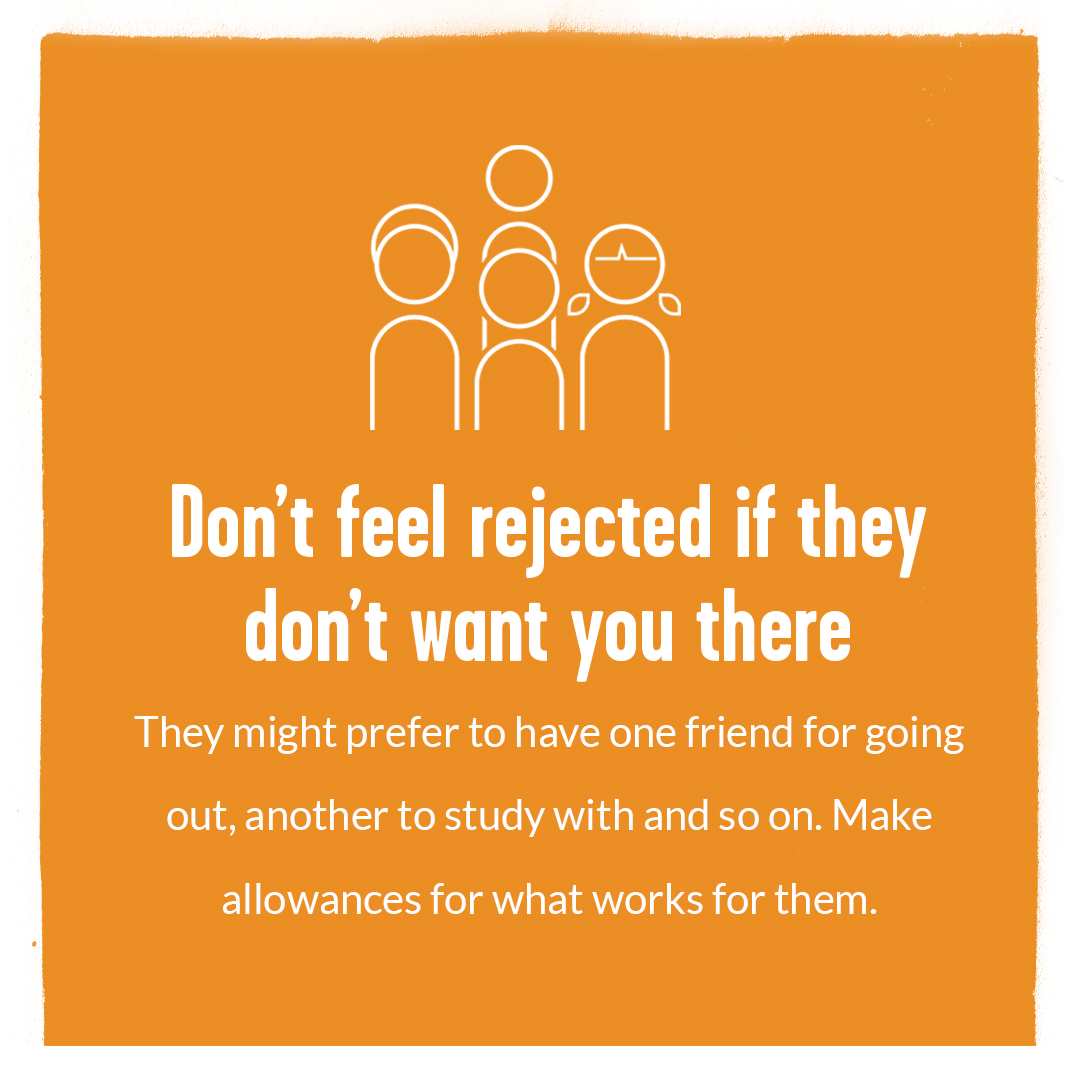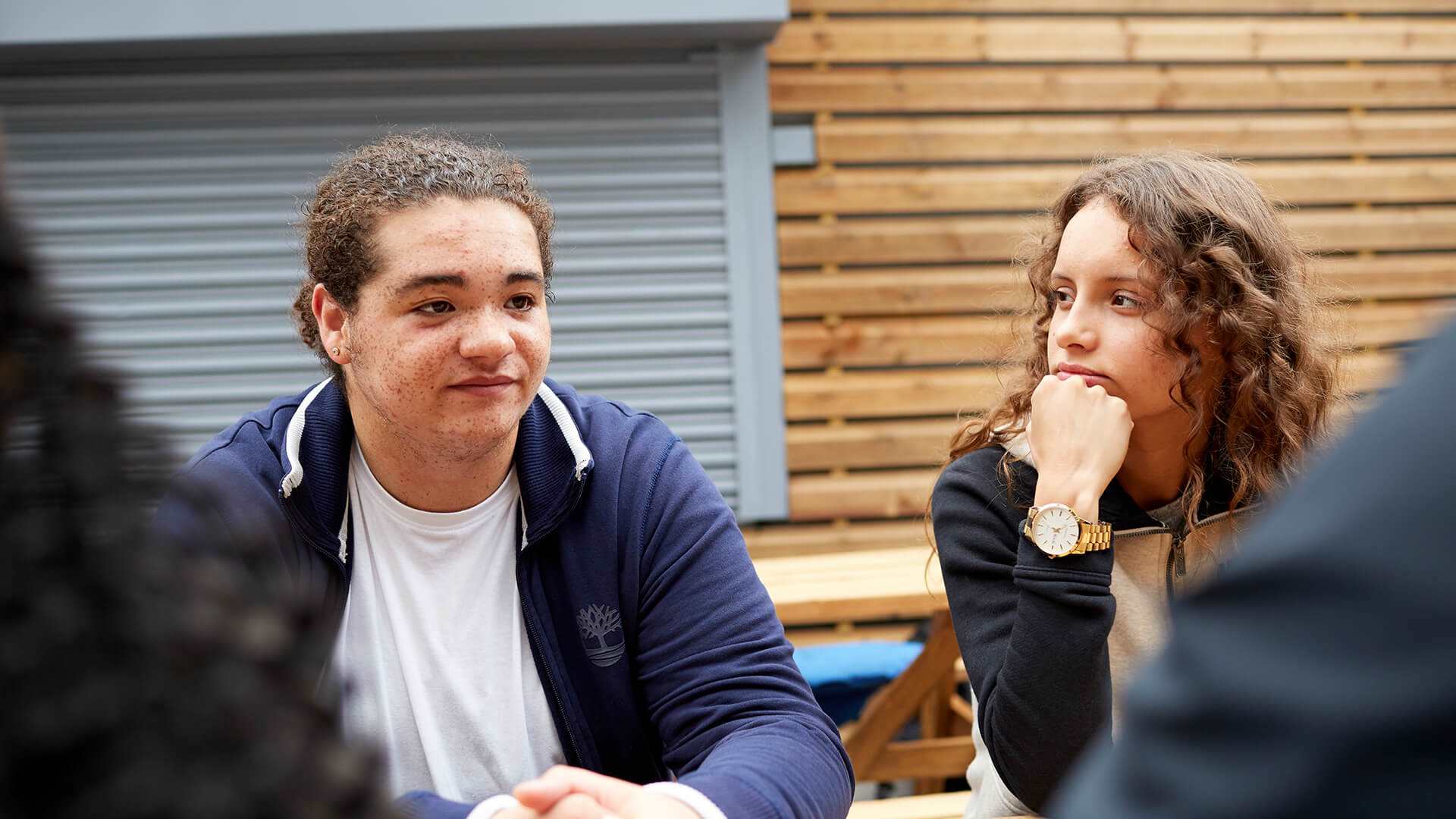What is grief?
It can be extremely difficult when you lose someone you knew. Whether you’ve lost a family member, a friend, or a pet, you may feel a whole range of emotions. Grief is an emotional response to this loss, and is a process rather than an event. It may affect how you feel physically, mentally and socially.
You might be grieving because of:
- the death of a family member, like a parent, grandparent or sibling
- the death of a friend, or someone you knew at school
- the death of someone by suicide
- a change in a relationship
- an illness of someone close to you, like cancer or dementia
- the loss of a relationship, like someone moving away or no longer being in your life regularly
- the loss or death of a pet animal
Whoever you have lost, you need time and space to grieve and come to terms with their death.
We all grieve differently.
Our Activists share their experiences of grief:
There’s no right or wrong way to grieve. You might feel angry, sad or depressed, or even guilty or relieved. You might be numb and not feel anything. The way you grieve might be influenced by your culture, beliefs, or how your family and community understand loss. How you react might be different to how other people around you react. You might not feel anything for a while, and may experience delayed grief. There might be some occasions when you are expecting it, like when you experience one of many ‘firsts’, such as your first Christmas without that person. Or these feelings might catch you unaware sometimes. Grief can come up at any time.
Symptoms of grief
You might feel:
- shock
- panic
- sadness or depression
- anger
- fear or anxiety
- guilt
- relief
- numbness, or nothing
- concerned with your health or other people’s
- abandoned
However, you’re feeling, your feelings are valid and you are not alone.
Working through your grief
It takes time to work through grief and it’s best not to do it alone. Sometimes you might be surprised by feelings of sadness when you don’t expect them – or you might keep worrying about other people’s health, or your own. These feelings are all normal. Most of us get through with the support of family and friends.
If you’re struggling to come to terms with a death, finding daily life hard and things don't seem to be getting any better, it can help to talk to someone. Tell a trusted friend, family member or teacher how you’re feeling. If you’re feeling very worried, you can talk to your GP about counselling and professional support.
It can be normal to feel guilty. But remember, the loss you have experienced is not your fault. And if you stop feeling sad or in pain, it does not mean that you don’t care enough. You are allowed to move on in your life, and it is not a sign that you don’t care enough for the person you have lost.
Expressing your grief
Here are some ways others have expressed their grief.

Post credit:@thegriefcase
'It’s important to see images about sadness, grief and pain. These are normal feelings that need to be acknowledged.'
Artwork credit: @poppyspapercuts
Two fingers hold a piece of cut out art. The art is a close up of someone holding their head in their hands. There are a stream of tears going over and down the hands. Underneath the face, the text reads: 'This too shall pass'

Post and artwork credit: @_ellamasters_
'Day 46 -“Courage doesn't always roar. Sometimes courage is the little voice at the end of the day that says I'll try again tomorrow.” #ella365project'
On a background of leaves, a hand holds an open book to a page that has the word 'hope' across it. The page is covered in different shades of blue in a variety of patterns.

Post and artwork credit: @brookepetermann_art
'67/100. Hold hands. A lesson for life. A particular lesson for loss. A hug can only last so long. But we need to hold tight to our people. Hold hands, bolster each other up, be stronger together, share love through finger squeezes.'
A hand holds a large canvas. On the canvas in a black circle are the words in blue, peach, yellow, green, black and purple which reads 'hold hands'. Underneath the words are small squares in matching colours to the text.

Post and artwork credit @crazyheadcomics
'today marks the one year anniversary of my grandpa’s passing. the way i experienced the loss never followed those “7 stages of grief”. my grief was unpredictable and seemingly unprovoked. it would lay dormant for weeks until something reminded me of it and then it hit me as hard as it did when i first received the news of his passing... there’s no wrong way to grieve, or process someone’s death...'
Light blue clouds are across the image with lightning and rain around them. In the large clouds are tips on coping with grief. They read: 'allow yourself time to mourn, try to keep your routine, reach out for support consider counselling, accept your feelings and express them, prioritise your eating and sleep, talk about the loss with someone you trust, write and reflect in a journal, don't make big decisions in the midst of grief, be patient with yourself mourning takes time, remember that life is for living, avoid substance use to numb yourself, treasure and celebrate the lives of your loved ones'. In the middle of the image is a circle with the words 'coping with grief'.

Post and artwork credit: @_ellamasters_
'Day 80- I wanted to create a little tribute piece to my brother, he’s the reason for my #ella365project to push myself and to not forget to be creative at least once a day! Until we meet again...'
A hand holds a piece of paper that has a pink background with red, orange and blue flowers across it. In front are two hands holding. Above the hands, the text reads: 'until we meet'. Below the hands, the text reads: 'again, brother.'

Post and artwork credit: @janellesilver
'Sometimes it will even feel so dark and lonely that you’ll no longer be able to tell where you end and the darkness begins. The thing is though it’s just a feeling and while it can be incredibly scary and real to experience, it’s a feeling not a fact. The truth is that behind all that blacked out area are friends, family, community, health care professionals - people that love and care about you, people that want to help and support you...'
A black background with the text: 'this is how it feels sometimes'. In the left-hand corner is a person with long black hair huddled in a ball holding their legs.

Post and artwork credit: @glitterandgrief
'No one ever told me that grief felt so like fear. I am not afraid, but the sensation is like being afraid. The same fluttering in the stomach, the same restlessness, the yawning. I keep on swallowing...'
A dark blue background with white trees. Behind the trees are small faded skulls. Above the trees and skulls, the text reads: 'no one ever told me that grief felt so like fear. C.S Lewis @glitterandgrief'. In front of the white trees is a person with a sad expression. They have pink hair and a yellow top holding a small flower.

Post and artwork credit: @thatgoodgrief
'I’ve been having a rough go at it lately (more on that later), but I think wrapped up in all of that is a deep seated fear that I *should* be better by now, right? It’s no longer that first year. It’s the second year by some counts, and third by others. But for those who have experienced loss around me, there’s no world in which I’d expect them to be *over* it. I need to show myself that same patience, accept that this thing we called grief is not on a schedule...'
A Monday - Friday schedule with lines next to each day. At the top of the image is the word: 'schedule' with stars on either side of it. Going across the schedule are the words: 'grief is not on a schedule.'

Post and artwork credit: @poppyspapercuts
'My sisters and I are in this club and we’re not alone. I’m intent on facing my grief this year so I’m starting my own meet up called @thegriefcase giving people the chance to share their feelings about loss...It’s taken me 2 years to realise that grief isn’t something you can just push to the side. It’s time to talk'
A hand holds a paper cut out of a black skull that has a broken heart at the top and tears coming down both eyes. On either side of the skull are two red roses. Above the skull, the text reads: 'dead dad', underneath the text reads in a scroll 'club'.

Post and artwork credit: @bymariandrew
'My dad died two years ago today. It's different for everyone, but my personal experience is that grief doesn't ever go away, but it does change shape and it becomes something you can hold rather than something that overwhelms you--a part of you, rather than a burden. Whatever you're carrying today, my heart is very much with you...'
Three different size bags sit across the image, one is a sack, the next a briefcase and the third a small handbag. On each bag is the word 'grief'. There are red arrows between each bag.
Tips and advice that can help
Helpful ways you can communicate how you are feeling:
- Write a letter to the person you have lost telling them all the things you want to say to them.
- Write a letter to someone who is supporting you, so they know what you are going through.
- Keep a diary or journal of how you feel.
- Express yourself through paintings or pictures.
- Write a song or poem.
- Create a memory box full of pictures and items which remind you of good times you had with the person you have lost.
How to help a friend who has been bereaved
- Listen if they want to talk. Don't feel you've got to solve anything or say something. You might feel helpless, but just being there and listening can be really helpful.
- Share your memories. If it feels appropriate and you're able to, share your memories of the person who's gone, during a chat, or in a card or letter. For the bereaved person, this can feel like being given back little pieces of the person they've lost.
- Don't feel rejected if they don't want you there. They might prefer to have one friend for going out, another to study with and so on. Make allowances for what works for them.

A bright orange square has an outline of an ear with a speech bubble next to it. The headline underneath in bold reads: 'Listen if they want to talk'.

A bright orange square has an envelope with a love heart on it. Around the envelope are lines to emphasise the envelope. The headline in bold underneath reads: 'Share your memories'.

A bright orange square has an outline of a group of people standing next to each other. The headline underneath in bold reads 'Don't feel reject if they don't want you there'.
Get help now
If you're not sure where to turn for support right now, these organisations can help.
-
Winston's Wish
Offers practical support and guidance to bereaved children, their families and professionals.
Online chat service available for young people (1pm - 5pm, Tuesdays & Fridays).
- Opening times:
- 9am - 5pm, Monday - Friday
-
Hope Again
Cruse Bereavement Care’s website for young people experiencing grief.
Has lots of personal stories from young people who have lost someone, as well as information and advice.
- Opening times:
- 9:30am - 5pm, Monday - Friday
-
Survivors of Bereavement by Suicide (SOBS)
Offers support for people over the age of 18 who have lost someone to suicide.
- Opening times:
- 9am - 9pm, Monday - Friday
-
Let's Talk About Loss
Let's Talk About Loss supports 18-35 year olds who have been bereaved of anyone, at any time.
They run monthly, peer-led meet ups all over the country and there is one online too, so wherever you are, you can access support. They talk about grief in a relaxed, fun and safe space with others of the same age who 'get it'. -
Grief Encounter
Supports children and young people through bereavement.
Free webchat service available.
- Opening times:
- 9am - 9pm, Monday - Friday
-
Marie Curie
Offers care, guidance and support for people living with any terminal illness and their families.
If English isn't you or your family's first language, they can provide an interpreter for over 200 different languages.
Free online chat service also available.
- Opening times:
- 8am - 6pm, Monday - Friday; 11am - 5pm, Saturdays; 10am - 4pm, Bank Holidays
-
Samaritans
Whatever you're going through, you can contact the Samaritans for support.
- Opening times:
- 24/7
-
Childline
If you’re under 19 you can confidentially call, chat online or email about any problem big or small.
Sign up for a free Childline locker (real name or email address not needed) to use their free 1-2-1 counsellor chat and email support service.
Can provide a BSL interpreter if you are deaf or hearing-impaired.
Hosts online message boards where you can share your experiences, have fun and get support from other young people in similar situations.
- Opening times:
- 24/7



